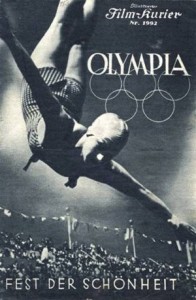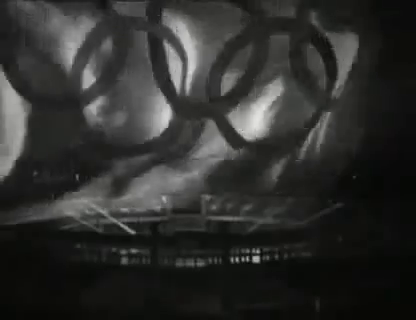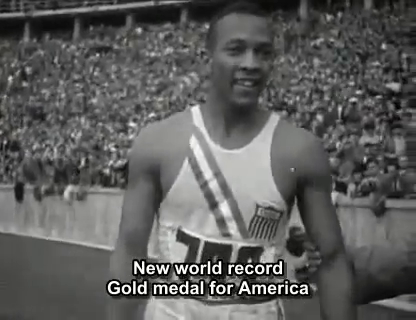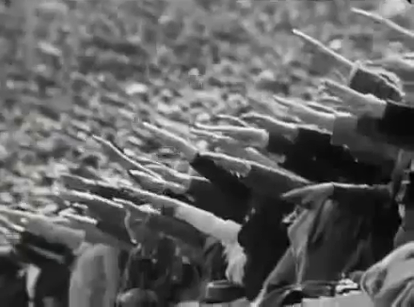Olympiad, The/Olympia (1936)
“For the last time, the athletes have to fight with all their might.”
|
Synopsis: |
|
Genres, Themes, Actors, and Directors:
Response to Peary’s Review: Indeed, given its reputation as yet another propaganda-laden film by the infamous Nazi-affiliated director of Triumph of the Will (1935), Olympia — officially titled Olympia Part One: Festival of the Nations and Olympia Part Two: Festival of Beauty — comes across as surprisingly even-handed in its representation of athletes from across the globe. The primary indicators that this film was made in pre-WWII Germany are the presence of swastika-laden German flags, several collective heil-salutes, and reaction shots of Hitler and his key henchmen in the audience. Regardless of her political affiliations (which of course one shouldn’t dismiss or forget), Leni Riefenstahl was an undeniably brilliant filmmaker. Although the film is too long to enjoy in one setting, and often repetitive, I find it far from boring; Riefenstahl could have chosen a different, more personal approach to filming this material, and edited more strategically, but her decision — to show a range of incredible sporting talent and physical beauty across nations — seems defensible. One finishes this marathon, two-part documentary with an appreciation for what the Olympics are (in part, ideally) designed to do: allow gifted athletes to compete as humans while simultaneously bringing honor to their homelands. Redeeming Qualities and Moments:
Must See? Categories
(Listed in 1001 Movies You Must See Before You Die) Links: |




One thought on “Olympiad, The/Olympia (1936)”
I’ve only seen this once – but what’s written in the assessment (which I think is rather accurate, as I recall) more or less brought it all back to me.
I honestly don’t think I could sit through it again (for an update of my own assessment), but that’s mainly due to its length and my general feeling of “once was enough”.
I’m not sure, really, that I would consider it must-see viewing for all film fanatics – but definitely for those who have an interest in Riefenstahl’s work. I noted for ‘Triumph of the Will’ that that is once-must-see viewing (as a valuable historical document). What also is most likely must-see is the doc about her: ‘The Wonderful, Horrible Life of Leni Riefenstahl’.